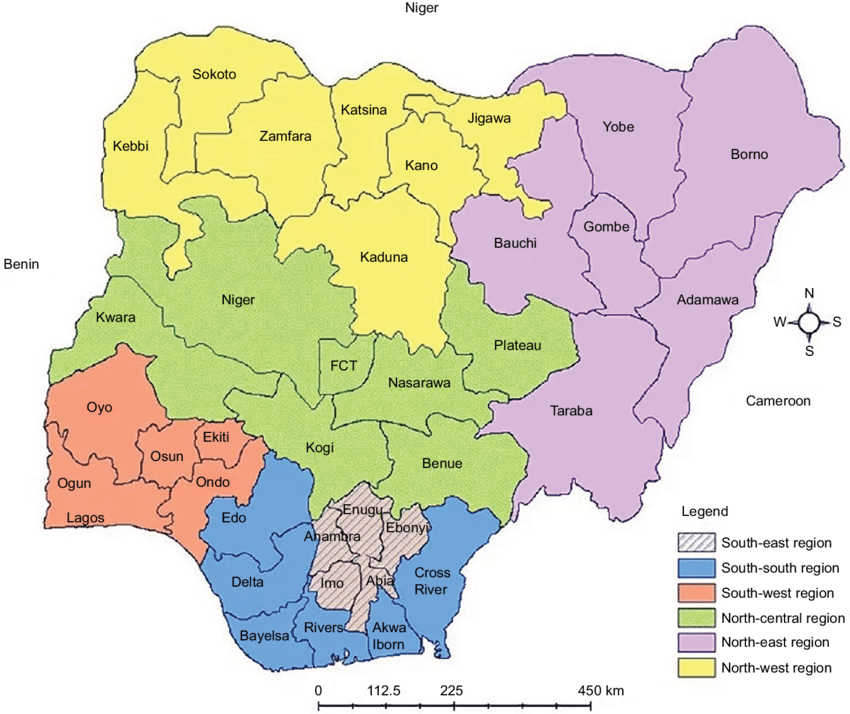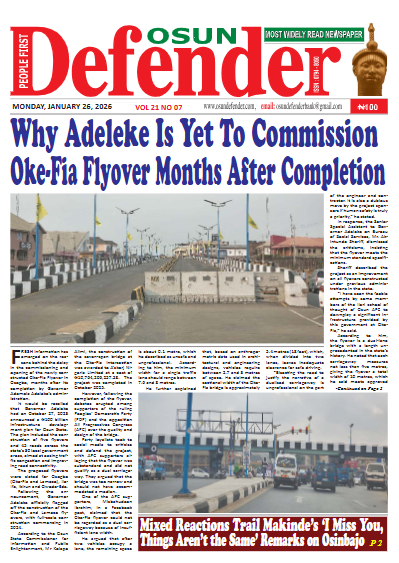Osun State is among the 11 out of the 36 state governments of the federation that can independently pay their workers’ salaries without depending on federal allocations.
This was according to an analysis of the state governments’ approved budgets for the 2024 fiscal year.
Apart from Osun State, the other states with robust internal revenue are Lagos, Kano, Anambra, Edo, Enugu, Imo, Kaduna, Kwara, Ogun and Zamfara.
Meanwhile, at least 24 states of the federation will not be able to pay workers salaries this year without having to wait for federal allocations from the central government, according a findings by The PUNCH.
The 24 states are Bayelsa, Ondo, Yobe, Sokoto, Taraba, Plateau, Oyo, Niger, Nasarawa, Kogi, Kebbi, Katsina, Jigawa, Gombe, Ekiti, Ebonyi, Borno, Benue, Bauchi, Adamawa, Akwa-Ibom, Cross River, Abia, and Delta.
The approved budgets are also contained in Open States, a BudgIT-backed website that serves as a repository of government budget data.
The budgets of 35 states have been made public but Rivers State budget could not be accessed neither has it also been uploaded the platform.
According to the budgets data, 24 states cannot fund salaries payments from their Internally-Generated Revenue and, as such, may have to rely on the Federal Government allocations or borrowing from banks and related institutions.
However, the budget data indicated that the 11 states which have higher IGR will conveniently fund their combined 980.68bn wage will their internal revenue of N2.34trn.
The respective wage bills of the affected states surpassed their various IGRs.
According to further analysis of the states budgets, the affected 24 states will spend N1.48tn on salaries in 2024, while they plan to make N914bn IGR. This means the states will need N566bn from either federal allocations or borrowing to complete the payment of salaries.
The breakdown of data shows that Oyo State will pay N132.67bn to workers after generating N92.79bn in its coffers which means the state will need additional funding to complete this.
For Niger State with projected revenue of N61.87bn, the state will need help to pay its civil servants N70.24bn while Nasarawa will pay its workers N54.45bn from its projected revenue of N43.3bn and another source.
In Bayelsa State with projected IGR of N23.9bn, the state government will need additional funds to pay its workers N69.12bn this year.
An internal revenue of N33.6bn is projected in Ondo, meaning that the state will also need extra money to fund its N56.76bn annual wage bill, while Yobe State will fund its N42.86bn wage bill from its projected IGR of N14.55bn and federal allocation or borrowing.
Also, the government of Sokoto is expected to pay N46.9bn salaries from its anticipated internal revenue of N37.1bn with funding from allocation/loan use to offset the rest.
Meanwhile, For Taraba to pay its work s N54.47bn from its internal revenue of N27.8bn, it will need additional funding.
Plateau need additional funding to clear its wage bill of N52.25bn from a projected revenue of N38.89bn.
Further analysis of the budget showed that states such as Kogi will pay its workers N65.07bn from its revenue of N30.23bn and federal allocation, while Kebbi will pay N37.3bn as salaries from its N17.8bn internal revenue and partial federal allocation. Katsina will spend N56.3bn on salaries from its N40bn internal revenue and federal allocation, while Jigawa will pay its workers N64.84bn from its revenue of N50.64bn and federal allocation.
Gombe must pay salaries worth N35.27bn from its anticipated revenue of N22.32bn and federal allocation. Ekiti will spend N2.78bn on salaries from its N1.5bn revenue and federal allocation. Ebonyi’s N28.16bn wage bill surpasses its revenue of N25.1bn, while Borno will pay its workers N50.28bn from its revenue of N27.5bn and federal allocation.
Benue State will pay N56.9bn as salaries from its revenue of N23.9bn, while Bauchi must pay salaries worth N46.9bn from its anticipated revenue of N37.1bn and federal allocation; Adamawa will spend N52bn on salaries from its N26.9bn revenue and allocation; Akwa-Ibom will spend N127.8bn on salaries from its N60bn revenue and allocation while Delta with projected revenue of N110.3bn must seek assistance to pay its workers N164.3bn.
Similarly, Abia with a revenue of N32.14bn will pay N47.83bn as salaries and needed additional funds while Cross Rivers with a projected revenue of N34.7bn needs financial assistance to pay its workers N67.75bn.

Kazeem Badmus is a graduate of Mass Communication with years of experience. A professional in journalism and media writing, Kazeem prioritses accuracy and factual reportage of issues. He is also a dexterous finder of the truth with conscious delivery of unbiased and development oriented stories.










